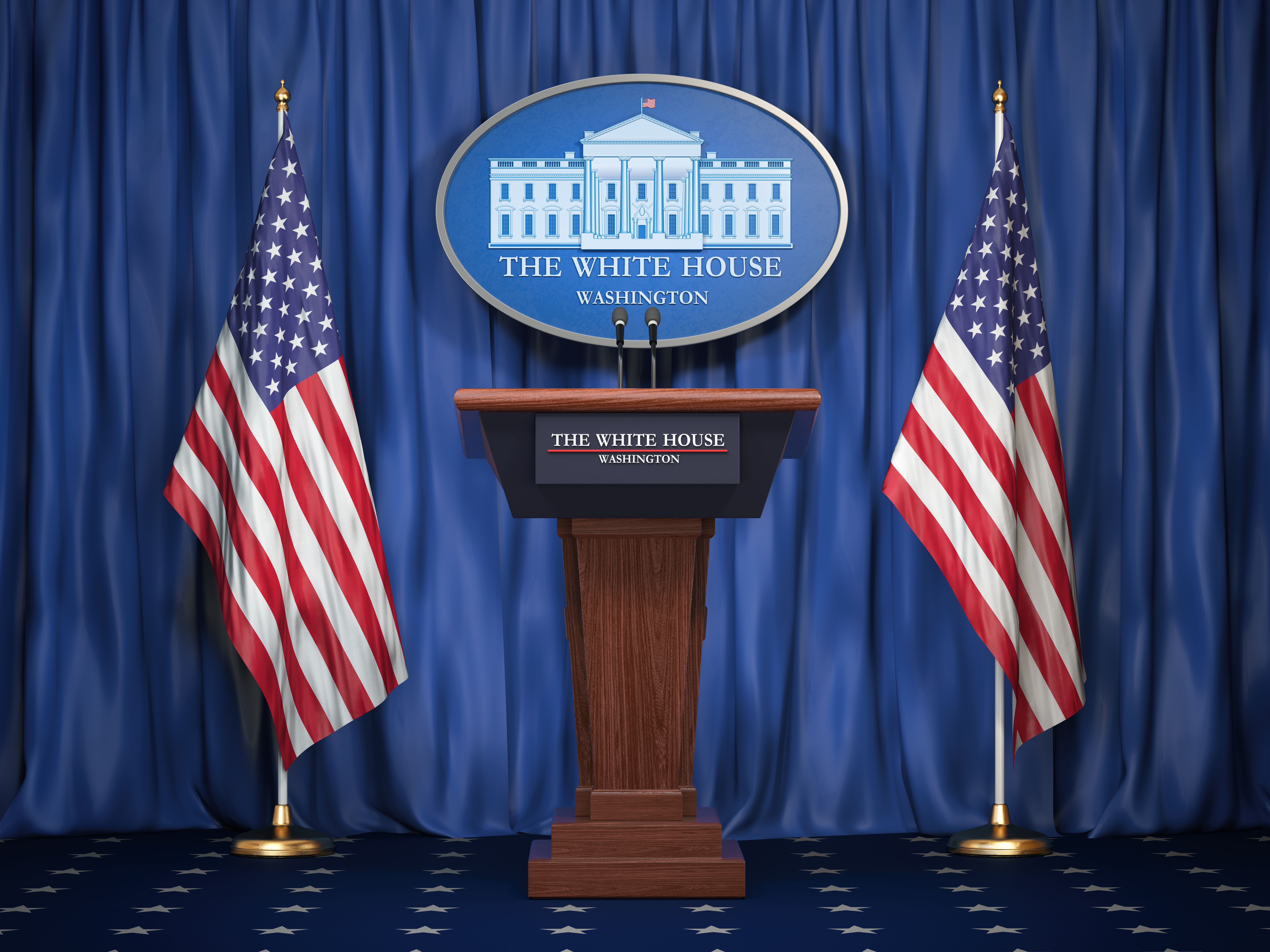Schools of Public Health Deans Discuss Challenges, Opportunities After 100 Days of Second Trump Administration.

‘There’s No Separating Health Equity from Public Health’
On May 1, deans from schools of public health at Emory University, the University of Washington, George Washington University, and the University of Minnesota joined SPH Dean Ad Interim Michael Stein to discuss the public health implications of the Trump administration’s actions in its first 100 days.
The Trump administration’s first 100 days have arguably yielded more consequential changes to the federal government, American norms, and foreign policy than any other presidential administration in modern history.
On Thursday, May 1, the School of Public Health brought together deans of schools of public health to make sense of the flurry of executive orders, mass federal layoffs, and research funding cuts that have transpired since January 20.
Moderated by Dean Ad Interim Michael Stein, the Public Health Conversation Public Health and the New Administration: The First 100 Days reconvened M. Daniele Fallin, James W. Curran Dean of Public Health at Emory University Rollins School of Public Health; Hilary Godwin, dean of the University of Washington School of Public Health; Lynn Goldman, Michael and Lori Milken Dean of the George Washington University Milken Institute School of Public Health; and Melinda Pettigrew, dean and Mayo Chair in Public Health at the University of Minnesota School of Public Health to continue a dialogue the group held at SPH shortly after the 2024 presidential election, on the future of public health under a second Trump agenda.
Many of the anticipated challenges the deans highlighted last November have indeed come to fruition, but the scale and speed of these developments have taken both supporters and opponents by surprise.
The conversation quickly turned to vaccines and some of the concerning federal actions that have taken place under the leadership of health secretary Robert F. Kennedy, Jr., including a cancelled independent advisory committee meeting about the 2025-2026 influenza vaccine, tepid promotion from RFK, Jr. of the child measles vaccine amid a multi-state measles outbreak; and the launch of a study to investigate links of childhood vaccination and autism, which has already been thoroughly debunked by credible research.
The planned autism study is “disheartening,” Fallin said. “We don’t see an association between vaccines and autism, [and] the mere question can lead to hesitancy, which has terrible consequences.” Despite the success stories that we’ve seen about vaccinations in the US and across the globe, she said, “we’ve seen actual deaths from vaccine-preventable diseases in our country as we speak, or in the past several months. So that’s been a real disappointment.”
The group also discussed the massive repercussions of Department of Government Efficiency-led gutting of federal agencies and spending, which has led a 25-percent reduction in US Health and Human Services staff, the dismantling of US foreign aid, the elimination of thousands of research grants (as the Trump administration appeals a ruling to block this effort), the cancellation of $11.4 billion in COVID-era funding for state and local testing, vaccination, and staff hiring, and the proposed consolidation of divisions within the National Institutes of Health.
“These are things that we talked about back in November as being possibilities, and I’m saddened to see that I think the reality has exceeded my worst fears,” said Godwin. “These [actions] are all having profound impacts not just on the federal workforce and the work that they do directly, but also on grants and programs that are run out of state and local health jurisdictions, and grant programs in academia…all of which have profound impacts on the work that we do across the entire public health system.”
Goldman discussed how the administration’s policy moves are threatening environmental health policy and science.
“The [Environmental Protection Agency] administrator on March 12 put forth this agenda for the EPA that [said] they’re going to do everything they can to thwart enforcement of environmental regulations,” Goldman said, referring to the EPA’s plan to rollback regulations on climate change, power plants, and vehicle emissions standards. “…However, these measures are running counter to very powerful economic forces such as the fact that solar and wind energy are becoming cheaper and cheaper and cheaper. Batteries are becoming cheaper. And so there’s a lot of incentives for industry to move forward with greener energy.”
So what is the appropriate public health response to the Trump agenda?
“We’re really going to have to think about tailoring communication strategies—and that’s going to require a lot more listening to what people’s challenges and concerns are,” Pettigrew said. “There are a lot of people that have felt abandoned by the systems. They don’t feel like they’re listened to in a way that they’re actually being heard. We’re going to have to do that work.”
It is also important for people in the public health field to protect their mental health and remain focused on the passions that drove them to this profession, Fallin said.
I think whatever that story is for you, I bet at some point it’s anchored in a concept of health equity,” Fallin said. “…There’s no separating health equity from public health. And if we think about our purpose, it has to do with this thinking that we all deserve health as a human right.”
The deans also provided guidance and tips to graduates entering the public health workforce. Watch the full conversation below.